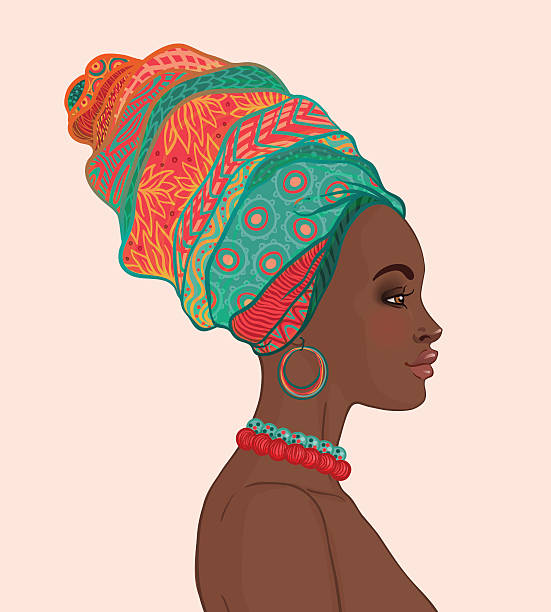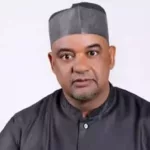Sometime in the 1980’s Newswatch magazine published a special edition to celebrate some outstanding Nigerian women proving their mettle in commerce and industry and the academia. We were beginning to hear footsteps along the corridors and their voices loud and clear in the board rooms. We felt it was worth celebrating them, if only to serve notice that the invasion of the men’s world had begun and the kitchen would become increasingly too small a space for those women achievers and their successor generations. We most aptly titled the cover story, The Women Are Coming. We knew what we were talking about, believe me.
I wish to report that the women have not yet quite arrived where it matters most – political leadership. They are still coming, obviously. It is a long walk. It is still a long walk. Their climb up the ladder of our national politics has been agonisingly slow. I looked at their movement from the First Republic to the current fourth republic and saw them putting on a brave face on their weary trek along the path of political power. Being a particularly gender-sensitive man, (ignore the sound of chest beating), I was shocked to see how long they have trekked and how short the distance they have covered so far in more than half a century of our independence.
Not to worry. It took the Israelites some 40 years to move from Egypt to the promised land. They had no motor vehicles. They trekked or trudged, more like it, through forests, rivers and deserts. On the other hand, even with the state of the art motor vehicles at their disposal, it has taken our women much longer to approach the gates of political power.
The First Republic boasted of formidable women activists who, against the odds of the male-dominated world, courageously fought for women’s rights and emancipation. Thanks to them, women were eventually given the right to vote and to be voted for. On the roll call were Mrs Margaret Ekpo, Mrs Funmi Ransome-Kuti and Hajia Gambo Sawaba, all of whom are now late. They dared and our women moved up in politics. Despite their struggle to better the lot of women in our country then, only one woman made it into the federal parliament where laws for the good governance of the republic were made. Mrs Wuraola Esan, the lone but not lonely woman, was a nominated senator from Ibadan West.
When the khaki politicians kindly yielded place to the agbada politicians in 1979, the women managed to get into the national assembly with the election of a female senator, Franca Afegbua (NPN, Bendel North) in 1983. She threw stones at the glass ceiling as the first elected female senator in the land. The glass did not break, let alone shatter.
Of the 109 distinguished senators representing the 36 states and the Federal Capital Territory in the 8th Senate, we had only seven women. We had eight of them in the 7th Senate. Instead of gaining, they lost. Trust our chauvinistic men.
PDP produced four of the seven female senators and APC three in 2015. The women managed to increase their number from seven to eight senators in the 9th national assembly.
I checked the distribution of the female senators to see which state is the most gender sensitive. Well, the prize goes to Anambra State with two senators: Stella Oduah (Anambra North) and Uche Ekwunife (Anambra Central). Lagos has the only ranking senator among them: Oluremi Tinubu (Lagos Central). The rest are: Cross River State 1: Rose Oko (Cross River North); Adamawa 1: Binta Garba (Adamawa North); Monsurat Jumoke Sunmonu (Oyo Central) and Ekiti 1: Fatimat Raji-Rasaki. Of the three northern geo-political zones only Adamawa elected a woman into the senate.
Women are even numerically more disadvantaged in the House of Representatives. There were only 22 of them out of the 360 honourable members in 2015. In 2019, the number fell to only 13. Only one woman has made it to the top in the national assembly. When Patricia Etteh was elected Speaker of the House of Representatives in 2007, I celebrated it with a glass of undiluted palm wine. She lasted for all of five months from June to October 2007. The National Assembly boasts of female leadership deficit.
The lot of the women politicians is worse in the state houses of assembly. At the inception of this democratic dispensation in 1999, Benue State House of Assembly made history by electing the first female speaker of a state legislature, Mrs Margaret Ichen. She suffered the same fate that befell Etteh some years later. Her time as the number three citizen in the state ended before you could say swange.
Both Oyo and Ogun state houses of assembly elected female speakers. Senator Monsurat Jumoke Sunmonu was the immediate last speaker of Oyo State legislature.. None of them has a female speaker now. Only Anambra State has a female speaker: Honourable Rita Maduabu.
In 2015, Hajia Aisha Alhassan became the first woman in the North to contest the governorship election. She bravely took on the men in Taraba State. She was brave but she failed to make history. She was in the race again in 2019. When a woman takes no for an answer, do not permit a smirk to dwell for too long on your face. Sadly, she has passed on.
The South West geo-political zone is profoundly gender sensitive. No woman in the zone has made it to the government house, but at least four or five of them were a hot breath away from it. Lagos, Osun and Ekiti have had female deputy governors. Lagos has had three since 1999. Women politicians in the other five geo-political zones—North Central, North West, North East, South East and South South—must be jealous of the better lot of their counterparts in the land that Oduduwa gave to the Yoruba. Tell the women I understand their feeling.
In 2019, Oby Ezekwesili, the tireless activist, announced her bid for president. The bells rang but just when we thought a brave woman was about to make it through the gates, she pulled back and pocketed her ambition.
It is sad that Nigeria is holding the candle to other countries in its treatment of women. I cite three countries. Rwanda has 106-member parliament – 20 in the Senate and 80 in the House of representatives. Women legislators are 61.3 per cent of this number. I can see why the healing process post the genocide in that country is a world record. Fifty-three per cent of the legislators in Cuba are women. Britain has 225 women in the House of Commons. Still, the giant of Africa believes our women’s place is in the other room.
(This piece was published in January, 2019, titled It’s a long walk for women. This is an improved version of that column)

 Join Daily Trust WhatsApp Community For Quick Access To News and Happenings Around You.
Join Daily Trust WhatsApp Community For Quick Access To News and Happenings Around You.


